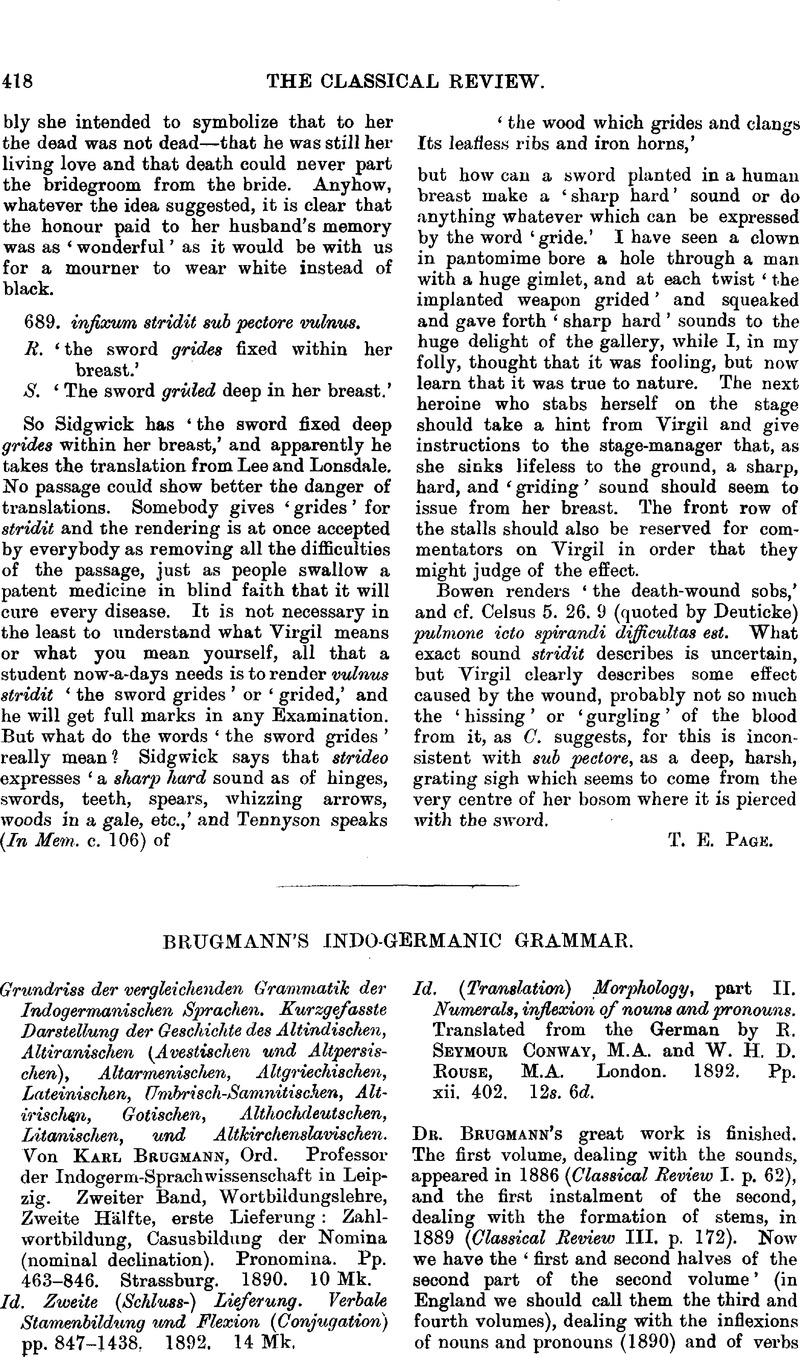No CrossRef data available.
Published online by Cambridge University Press: 27 October 2009

page 420 note 1 Dr. Brugmann does not acknowledge na for Indo-European, but only nā, n∂, n. When I referred to this question once before (Classical Review I. pp. 64, 65) I was wrong in refusing to accept the Asiatic evidence for ∂ and no-vowel as ultra-weak stages for ἳςτāμι, τíθημι, δíδωμι. But I am still convinced that Greek and Latin, taken jointly, prove the existence of a, ä, ao as less weak stages in the three verbs respectively. And in general I am not yet convinced that De Saussure's e- system does not apply to vowels of these types, although the difficulties are much greater than they seemed at first.
page 421 note 1 Including American. Licet omnia Italica pro Romanis habeam.